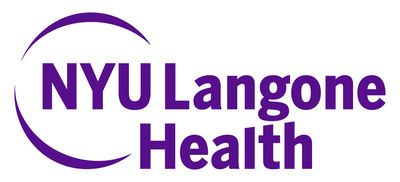[ad_1]
BROOKLYN, N.Y., Dec. eight, 2019 /PRNewswire/ — A pc betting sport may also help predict the chance that somebody recovering from opioid habit will reuse the pain-relieving medicine, a brand new examine exhibits.

(PRNewsfoto/NYU Faculty of Medication)
The sport, now being developed as an app, assessments every affected person’s consolation with risk-taking, producing mathematical scores referred to as betas lengthy utilized by economists to measure customers’ willingness to attempt new merchandise. The crew then used a statistical take a look at to see whether or not modifications in risk-taking consolation tracked with opioid reuse, and located that individuals who positioned higher-risk bets had larger beta scores.
When mixed with different take a look at scores that quiz a affected person about current drug use and want to make use of medicine, or cravings, the examine discovered that sufferers who confirmed sharp will increase of their complete beta scores have been as a lot as 85 p.c prone to reuse throughout the subsequent week. In contrast, these whose beta scores didn’t bear a spike have been a lot much less prone to reuse throughout therapy, normally a mixture of discuss remedy and medicines to wean sufferers off their opioid habit.
Researchers say the findings, revealed within the Journal of the American Medical Affiliation (JAMA) Psychiatry on-line Dec. eight, might result in the design of scientific instruments for monitoring and lowering the variety of sufferers who reuse opiates throughout therapy. Greater than 2 million People are estimated to have some type of opioid-use dysfunction.
In accordance with the NYU Grossman Faculty of Medication researchers who led the brand new examine, which can be being introduced on the annual assembly of the American Faculty of Neuropsychopharmacology in Orlando, Fla., a majority of sufferers reuse sooner or later throughout therapy, and greater than half relapse inside a yr of present process remedy.
And whereas drug remedies with methadone, buprenorphine, and naloxone are extremely efficient in weaning sufferers off opioids, researchers say their impression has been constrained by an absence of fine instruments for measuring how nicely sufferers are responding to any therapy and for figuring out when therapy ought to be tailor-made (e.g., by growing or lowering drug doses) to stop reuse.
Researchers say present strategies are inadequate and rely an excessive amount of on cravings and on urine testing, which solely gives such info after a affected person has already reused.
“Our examine exhibits that computer-based diagnostic assessments might supply a helpful new choice,” says examine senior investigator and neuroeconomist Paul Glimcher, PhD. “Ideally, clinicians would have a number of instruments out there for real-time monitoring of how nicely our sufferers are managing to free themselves from their habit,” says Glimcher, a professor within the Neuroscience Institute and within the Division of Psychiatry at NYU Langone Well being.
Glimcher notes that whereas many sufferers expertise reuse “slip-ups” throughout remedy, they don’t seem to be thought of to have relapsed until they fail to return and full a typical, six-month therapy plan.
For the examine, researchers recruited 70 women and men present process opioid habit remedy at NYC Well being + Hospitals/Bellevue. Every performed the betting sport commonly for seven months once they got here in for weekly or month-to-month clinic visits. Their outcomes have been in comparison with the outcomes for 50 different Bellevue sufferers of comparable race, gender, and age who additionally performed the sport weekly however have been by no means hooked on opiate medicine.
As a part of the sport, sufferers had the choice of accepting a recognized danger, corresponding to an instantaneous chip reward value $5, or playing on a “riskier” bag of chips with the potential of both higher reward, as excessive as $66, or nothing. Some baggage contained solely two chips, leaving gamers with a 50 p.c of successful, whereas others contained extra chips, with gamers not at all times understanding their possibilities of successful. Danger scores have been then plotted on a graph for monitoring every affected person’s willingness to take recognized or unknown danger. The sport takes just a few minutes to finish.
Glimcher says sufferers usually display a sample of “ups and downs” all through therapy, with low beta scores once they really feel in command of and even overconfident of their skill to withstand any urge to reuse, however these scores then rise instantly earlier than sufferers reuse, once they begin “feeling fortunate” and are prepared to put higher-risk bets.
As soon as accomplished, Glimcher says his smartphone app primarily based on the betting sport may very well be used to offer each day monitoring of sufferers’ progress. Check outcomes may very well be “networked” to a affected person’s medical crew and psychological well being assist group, together with shut family and friends, to alert them when a affected person is weak and at higher danger of reuse.
Funding assist for the examine was offered by Nationwide Institute on Drug Abuse grants R01 DA043676 and F32 DA039648. Extra funding assist got here from Mind & Habits Analysis Basis grant 25387, the U.S. Fullbright Fee and the federal government of Colombia. Glimcher is creating his app with DataCubed Well being, an organization through which he has a monetary curiosity. This relationship is being managed in accordance with the insurance policies of NYU Langone.
Apart from Glimcher, different members of the NYU Langone crew are examine co-senior investigator John Rotrosen, MD; and co-lead investigators Anna Konova, PhD, now at Rutgers College in Piscataway, NJ; and Silvia Lopez-Guzman, MD, PhD, now at Rosario College in Bogota, Colombia. Different examine co-investigators are Stephen Ross, MD; and Kenway Louie, MD, PhD.
Media Inquiries:
David March
212-404-3528
david.march@nyulangone.org

View authentic content material to obtain multimedia:http://www.prnewswire.com/news-releases/computer-game-may-help-to-predict-reuse-of-opioids-300970530.html
SOURCE NYU Langone Well being
[ad_2]
Source link









